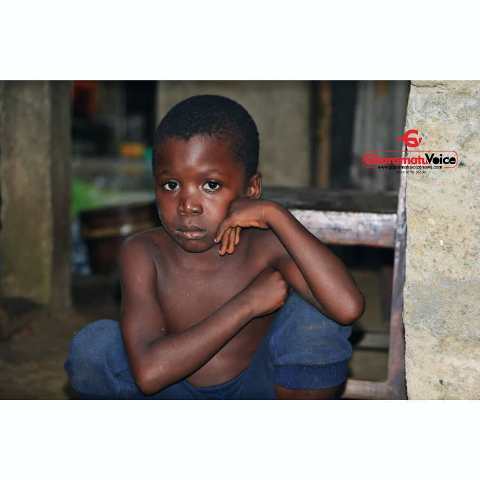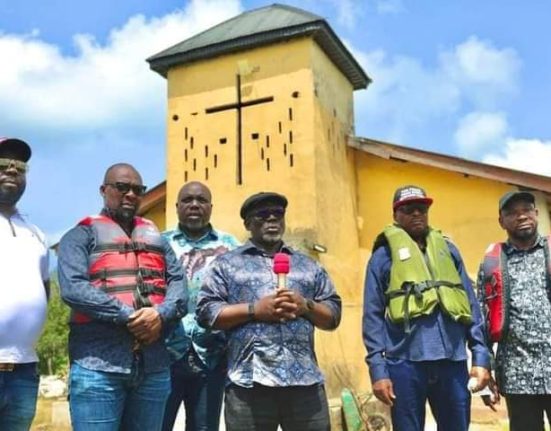By Abai Francis
As Nigerians and the world over mark October 5 as World Teachers’ Day (also known as International Teachers Day), the state of education in the riverine areas could best be described as a disaster. While the World Teachers’ Day aims to focus on appreciating, assessing and improving the educators of the world, and to provide opportunity to consider issues related to teachers and teaching; however, teachers in riverine communities are at a complete loss.
The riverine communities are those settlements located in the creeks of the Niger Delta, a very densely populated region formerly called the Oil Rivers, because it was once a major producer of palm oil. These settlements are predominantly inhabited by the Ijaws, the Itsekiris, and the Illajes.
Currently, though the Delta is a petroleum-rich region, this is not reflected in the lives of the citizens, and education being a vital sector in the economy is not left out. Despite more than 50 years of oil exploration activities in the area, most public primary and secondary schools in riverine areas are lacking in basic infrastructures such as standard blocks of classrooms, accommodation (for teachers) and other facilities such as furniture, libraries, laboratories, including teaching aids and materials.
Some of the peculiar challenges bedeviling the teachers in riverine areas are not unconnected with the lack of social basic infrastructures encompassing transport, health, security, finance, power, etc. that cut across human needs. And because these institutions and others are absent, most citizens who are not familiar with the terrain, do not want to go there. Hence, teachers posted to most of the schools in these terrain hardly turn up to perform their assigned roles, a situation that leads to lack of teachers.
While the Universal Declaration of Human Rights, adopted in 1948, is the first international legal instrument that recognises education as a human right, it is sad to say that it seems the children in riverine areas have no right to education due to the neglect by the government in addressing the aforementioned challenges.
What is the fate of children in the riverine areas in the absence of education? What future awaits children whose parents are not privileged to send them to school in the uplands? What consequence does this pose to national peace, growth and development of the region and the country at large?
Recall that the riverine areas are always prone to crises due to the neglect of oil companies, state and federal governments. And whenever there are conflicts in the region, the government is always quick to mobilise security personnel, equipped with arms, to deal with frayed nerves tagged as militants. If only the government would garner same attitude towards approaching issues of lack educational infrastructures in the riverine areas, the area would be better off.
The government should realise that there would be no peace in the absence of education. It was in this instant that the Nigerian Maritime University (NMU) was sited in the creeks at Okerenkoko with takeoff campus at Kurutie community, Gbaramatu Kingdom. But despite this giant move, qualitative foundational education (primary and secondary) remains a big challenge.
And so, a state of emergency should be declared on education in the riverine areas by the Nigerian government and world bodies alike. The area needs special attention due to the peculiarity of its terrain and the lack of accessibility by roads, as boats remain the medium of access. Moreover, since the Niger Delta is an oil producing region, emphasis should be placed by both private and public institutions alike, on ensuring riverine communities benefit from infrastructural development, education inclusive.
The teaching profession should be supported such that teachers assigned to riverine communities are financially buoyant by their receiving preferential payment as a way to lure them to see teaching in coastal settlements as attractive. Modern facilities should be provided, spanning hygienic water supply, availability of teaching aids and materials, modern blocks of classrooms and laboratories fully equipped, accommodation facilities and provision of transport, etc.
The future belongs to the youths who are leaders of tomorrow, but they cannot become leaders without teachers playing a vital role. In extension, the nation Nigeria cannot be adjudged to be great with the Niger Delta’s oil resources. And so, what is good for the goose is also good for the gander, as education in riverine communities should not be neglected but given a boost so as to create an environment where people are informed, not deformed.
Support Quality Journalism in the Niger Delta Region
Join us in our mission to bring development journalism, cultural preservation, and environmental awareness to the forefront. Your contribution makes a difference in the lives of the people of the Niger Delta. Donate today and be a part of the change!









Leave feedback about this
You must be logged in to post a comment.